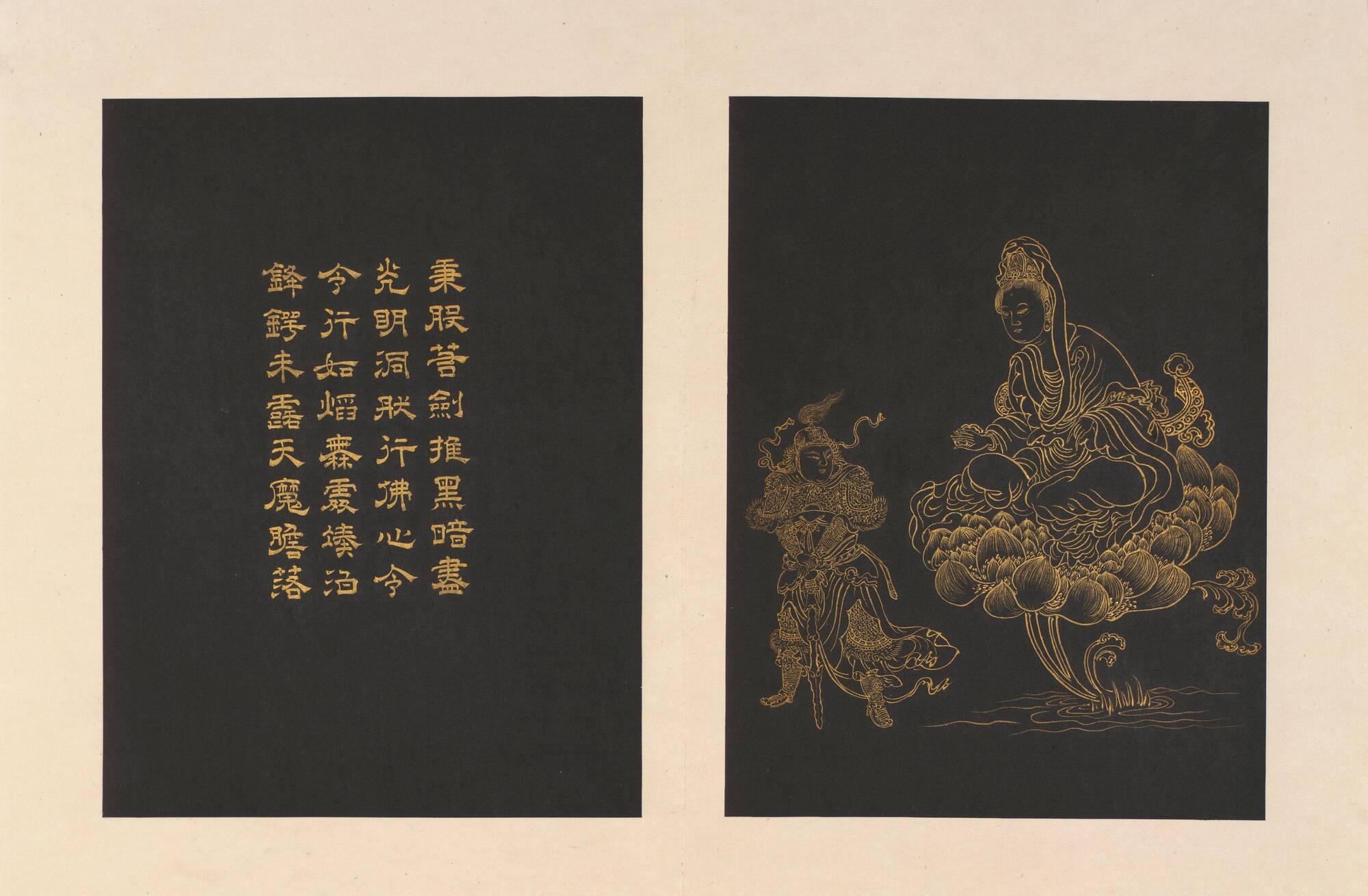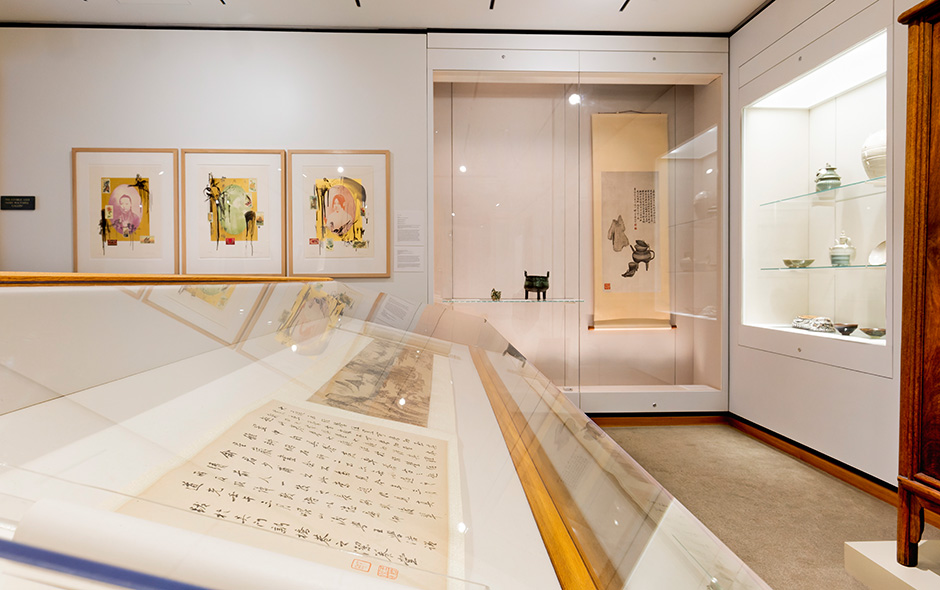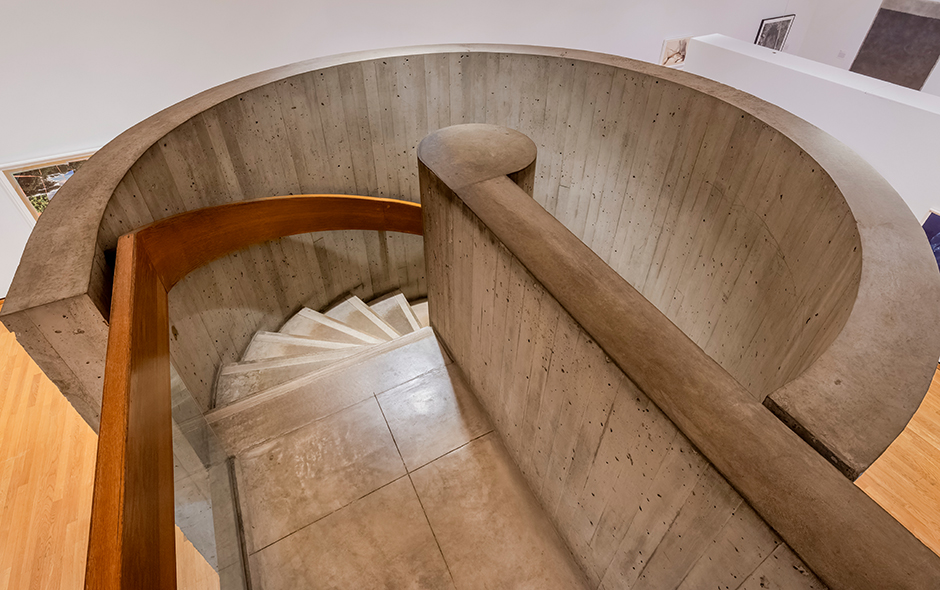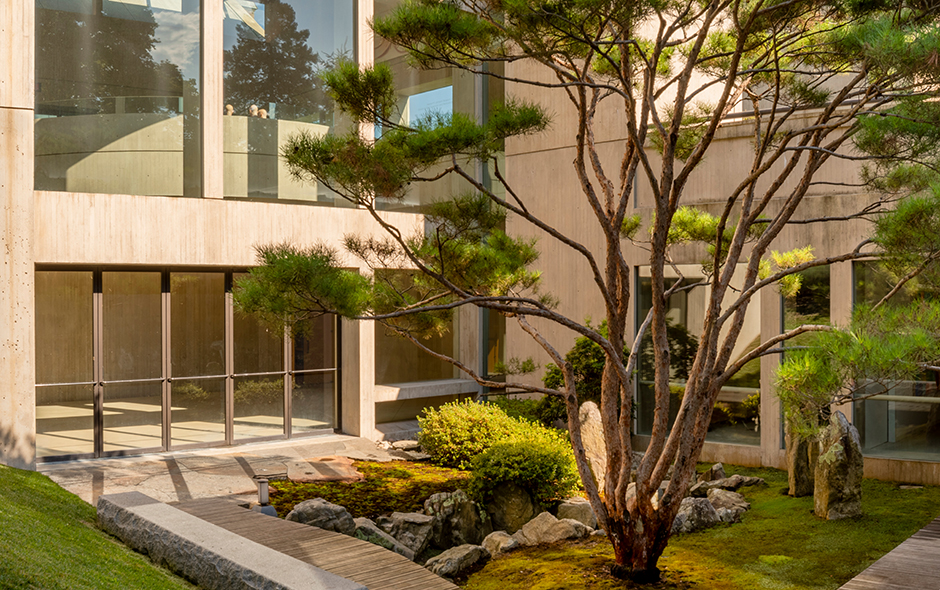Miss Qiu
(Chinese, active ca. 1565–1585)
Guanyin and Deva Mara, from an album of twenty-four portraits of Guanyin

Object Details
Artist
Miss Qiu
Date
late 16th century
Medium
Album pages: gold ink on dyed paper
Dimensions
Image (each): 11 9/16 × 8 11/16 inches (29.4 × 22.1 cm)
Sheet: 14 9/16 × 22 inches (37 × 55.9 cm)
Mat: 22 × 28 inches (55.9 × 71.1 cm)
Credit Line
Acquired through the generosity of Judith Stoikov, Class of 1963, supplemented by the George and Mary Rockwell Fund, and gift of Warner L. Overton, Class of 1922, by exchange
Object
Number
2002.012.005
Inscribed with a poem:Having seized the prajna [wisdom] sword,drive back the darkness altogether!Onc(…)
Inscribed with a poem:Having seized the prajna [wisdom] sword,drive back the darkness altogether!Once that solitary Illumination is fathomed,practice the mandates of the Bodh-mind!Righteous deeds are like flickering flames;there are no means [grounds] to get a footing.Before the [prajna sword’s] razor-sharp blade appearsDeva Mara is terrified!As is the case with many Chinese women artists, little is known of Miss Qiu’s biography beyond the fact that she was the daughter of the famous painter Qiu Ying (active 1530-50). Two of the seals on this album belong to Xiang Li, one of the wives of the famous Ming collector Xiang Yuanbian. Qiu Ying lived with the Xiangs toward the end of his life; Miss Qiu might have lived there then as well and after her father’s death maintained a close relationship with the family. Her album is inspired by a woodblock print series based on paintings by Ding Yunpeng (1547-1628) that were in turn based on a famous handscroll depicting thirty-two manifestations of Guanyin by Li Gonglin (1049-1106) that was owned by Xiang Yuanbian. In this image the demon of delusion, Deva Mara, is depicted as an image of authority and civil power, but stands on thin air or on the surface of the muddy waters out of which the lotus flower grows. Guanyin sits on a lotus blossom, symbol of purity and of the Buddha.












